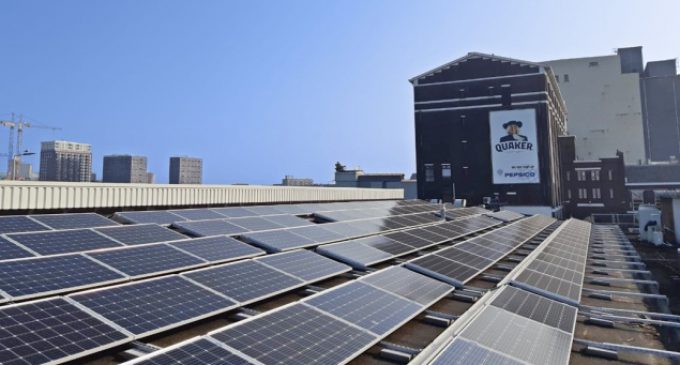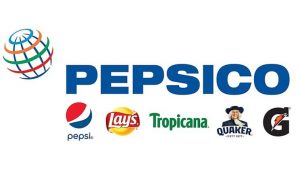PepsiCo Doubles its Climate Goal and Pledges Net-zero Emissions by 2040

PepsiCo has announced plans to more than double its science-based climate goal, targeting an absolute reduction of greenhouse gas (GHG) emissions across its value chain by more than 40% by 2030. In addition, the company has pledged to achieve net-zero emissions by 2040, one decade earlier than called for in the Paris Agreement.
Specifically, PepsiCo plans to reduce absolute GHG emissions across its direct operations (Scope 1 and 2) by 75% and its indirect value chain (Scope 3) by 40% by 2030 (2015 baseline). This action is expected to result in the reduction of more than 26 million metric tons of GHG emissions or the equivalent of taking more than five million cars off the road for a full year.
“The severe impacts from climate change are worsening, and we must accelerate the urgent systemic changes needed to address it,” explains PepsiCo Chairman and CEO Ramon Laguarta. “Climate action is core to our business as a global food and beverage leader and propels our PepsiCo Positive journey to deliver positive outcomes for the planet and people. Our ambitious climate goal will guide us on the steep but critical path forward – there is simply no other option but immediate and aggressive action.”
 PepsiCo’s action plan is centered around both mitigation, reducing GHG emissions to decarbonise its operations and supply chain, and resilience, reducing vulnerabilities to the impacts of climate change by continuing to incorporate climate risk into business continuity plans. In Europe, PepsiCo has already reduced its total emissions by 6% since 2015, in line with global reductions, and its new comprehensive emissions reduction plan will focus on priority areas such as agriculture, packaging, distribution and operations.
PepsiCo’s action plan is centered around both mitigation, reducing GHG emissions to decarbonise its operations and supply chain, and resilience, reducing vulnerabilities to the impacts of climate change by continuing to incorporate climate risk into business continuity plans. In Europe, PepsiCo has already reduced its total emissions by 6% since 2015, in line with global reductions, and its new comprehensive emissions reduction plan will focus on priority areas such as agriculture, packaging, distribution and operations.
“There is no vaccine for climate change. But our planet is in crisis,” says Silviu Popovici, Chief Executive Officer, PepsiCo Europe. “PepsiCo’s new climate goal will double our efforts on emission reductions. This impacts both our company-owned businesses but also includes our suppliers and bottlers. Simply put, we all have to do more.”
The path to 40% absolute emissions reduction in Europe will focus on the following:
- With agriculture accounting for approximately one quarter of worldwide GHG emissions and one third of PepsiCo’s emissions, PepsiCo will further scale sustainable agriculture and regenerative practices that help lead to emissions reduction and sequestration, as well as improved soil health and biodiversity, decreased deforestation, and increased productivity for farmers. This includes expanding the company’s global network of Demonstration Farms, to help implement sustainable practices and improve livelihoods. In Europe, PepsiCo will also roll out a technology to produce a low emission fertiliser, made from potato waste at its Walkers and Lays factories, as well as further leverage precision agriculture technology in its Quaker oat and Lay’s potato crops. The company will also drive a switch to renewable energy with farmers and suppliers of its agricultural ingredients.
- PepsiCo will lower GHG emissions impact with a continued drive to reduce virgin plastic use and increase recycled content in its packaging. This includes recent announcements in Europe to move Pepsi in nine European markets into 100% recycle plastic (rPET) bottles by 2022.
- Through the implementation and upgrading of environmentally sustainable manufacturing, warehousing, transportation and distribution sites, the company aims to maximise efficiency in its supply chain, while also adopting zero- and near-zero-emission technologies. From Lay’s to Pepsi MAX and Quaker to Tropicana, more and more PepsiCo brands are being made using electricity from renewable sources. 12 countries in PepsiCo’s Europe sector already source 100% renewable electricity and have renewable energy sources installed on-site at 13 facilities in the region such as windmills, solar, photovoltaic panels or biomass generators. PepsiCo will also work with its suppliers to transition to low and zero emissions fuel in its logistics while also expanding its use of AI technology to enable better route planning to reduce emissions in distribution.
- PepsiCo is implementing innovative business processes that enable GHG emissions mitigation, such as its “Sustainable from the Start” program, which puts environmental impact decision-making at the heart of product design. Additionally, two internal carbon pricing programs, one aimed at eliminating the carbon impact of employee business air travel and another at building carbon impact into carrier selection for third party logistics will help further reinforce climate considerations in PepsiCo’s business decisions.
As part of an ongoing commitment to use PepsiCo’s scale and reach to influence the broader food system, PepsiCo is engaged in multiple coalitions aimed at driving action on climate change, including the One Trillion Trees initiative, The Climate Group’s RE100 and We Are Still In.
PepsiCo’s announcement aligns to the Business Ambition for 1.5°C pledge and has been approved by the Science Based Targets initiative as the most ambitious designation available through their process.
“We congratulate PepsiCo on setting an emissions reduction target consistent with limiting warming to 1.5°C, the most ambitious goal of the Paris Agreement,” says Nate Aden, Senior Associate at World Resources Institute, one of the Science Based Targets initiative partners. “Companies have a vital role to play in driving down global emissions, and it is encouraging to see major players, such as PepsiCo, taking ambitious action.”

































